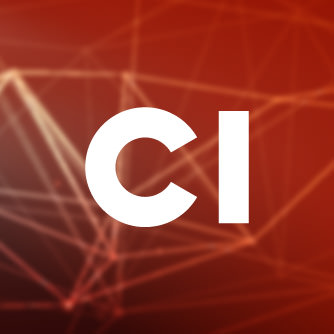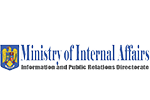Credits
- MOOC coordinators Manuel Gértrudix Barrio & Rubén Arcos Martín
- Content written by Mihaela Teodor
- Multimedia design by Claudia Martín-Carnerero Lara
- Visual Identity by Juan Romero Luis
Digital Platforms Used for disinformation operations
Propaganda and disinformation in historical perspective
Organised state-sponsored disinformation campaigns have become an important tool of hybrid warfare weakening the institutional framework of the European Union and NATO. The use of social and non-traditional media is also an integral part of the Russian and Chines propaganda machines. Here, too, the internet and social media have played a distinctive role. We can see the advantages of the use of new media in disinformation war in the table below. The Russian and Chinese troll armies, interacting directly with readerships in a range of forums including online discussion boards, Twitter and more, has acted as a force multiplier for driving home the pro-Russian/pro-China message, especially by diverting or suppressing any debate that has sought to highlight the inconsistencies or implausibility of the state sponsor version of events. (Giles, March 2016) Moreover, simple acts of liking and sharing content can result in viral dissemination of information of all kinds. Liking and sharing itself would not be a problem if all the information were verified and fact checked. According to experts in communication, the real problem lies in the dissemination of manipulated, incomplete or utterly false information.
Digital platforms used for disinformation operations. Source: Europarl
Methodology and Resources
- Giles, Keir, (March 2016), Russia’s ‘New’ Tools for Confronting the West. Continuity and Innovation in Moscow’s Exercise of Power, p. 35, retrieved from Chathamhouse
- Bayer, Judit, Bitiukova, Natalija, Bárd, Petra, Szakács, Judit, Alemanno, Alberto, Uszkiewicz, Erik, (February 2019), Disinformation and propaganda – impact on the functioning of the rule of law in the EU and its Member States, Directorate General for Internal Policies of the Union, accessible on Europarl
- Cull, N. J., Holbrook, D. & Welch, D. (2003). Propaganda and Mass Persuasion: A Historical Encyclopaedia, 1500 to the Present. ABC Clio, Oxford.
- Denisova, A. (2017), How propaganda from the Russian Revolution brought about today’s ‘troll factories, The Independent. Accessed 29/03/18:
- Herzstein. R.E. (1978). The War that Hitler Won: The Most Infamous Propaganda Campaign in History, G. P. Putnam’s, Sons, New York.
- Kaminska, I. (2017). A module in fake news from the info-wars of ancient Rome, Financial Times. Accessed 29/03/18: FT
- Knightly, P. (2004). The First Casualty: The War Correspondent as Hero and Myth Maker from the Crimea to Iraq, Johns Hopkins University Press, New York.
- Power, S. (2017). Samantha Power: Why Foreign Propaganda Is More Dangerous Now, The New York Times. Accessed 29/03/18: NYTIMES
- Rodny-Gumede, Y. (2017). Fake news: the internet has turned an age-old problem into a new threat, The Conversation. Accessed 29/03/18 The conversation
- Soll, J. (2016). The Long and Brutal History of Fake News, Politico Magazine. Accessed 29/03/18 Politico
- Thompson, D. (2017). What Facebook and Google Can Learn from the First Major News Hoax, The Atlantic? Accessed 29/03/18 The atlantic
- Woolf, N. (2016). As fake news takes over Facebook feeds, many are taking satire as fact, The Guardian. Accessed 29/03/18: The guardian
- Welch, D. (1993). The Third Reich, Politics and Propaganda, Second Edition, Routledge, London and New York See more abput sputnik and Gagarin prop on Rbth
- The European story. 60 years of shared progress, available on-line on Europa.eu
- Wilayat Internet: ISIS’ Resilience across the Internet and Social Media, available on-line on Bellingcat
- Marwick, A., and Lewis, R. (2017). Media Manipulation and Disinformation Online [whitepaper]. New York:Data & Society Research Institute, p. 44, retrieved from data society European Parliament, Understanding propaganda and disinformation, November 2015.
- European Parliament Resolution of 23 November 2016, EU strategic communication to counteract anti-EU propaganda by third parties, Strasbourg, accessible on-line on Europarl.europa
- European leaders call for continued and coordinated efforts to counter disinformation threats, 22/03/2019, accessible on-line on EEAS
- Funke, Daniel, (2018), A guide to anti-misinformation actions around the world, Poynter, July 2, accessible on-line on Poynter
- Graves, L., Cherubini, F. (2016). The rise of fact-checking sites in Europe. Reuters Institute for the Study of Journalism, available on-line on reuter institute
- Stencel, Mark, Griffin, Riley, (2018), Fact-checking triples over four years, ReportersLab, February 22, accessible on-line on Reporterslab
- The Prague Manual, (2018), Kremlin Watch Report. European Values Think-Thank Team, Prague.
- Wardle, C., Derakhshan, H. (2018). Information Disorder: Toward an interdisciplinary framework for research and policy making, Council of Europe report DGI (2017)09, 2017. Accessible on-line on RM.COE
- Meister, Stefan. “The ‘Lisa Case’: Germany as a Target of Russian Disinformation.” NATO Review Magazine, July 15, 2016, available on-line on NATO
- Ghosh, D., Scott, B. (2018). Digital Deceit. The Technologies behind Precision Propaganda on the Internet. Accessible on-line on https://www.newamerica.org/public-interest-technology/ policy-papers/digitaldeceit.
- Huang, Echo, (September 19, 2019), Why China isn’t as skillful at disinformation as Russia, in Quartz, accessible on-line on QZ
- Lahiri, Tripti, (August 20, 2019), China’s disinformation on Hong Kong protests is on Twitter and Facebook, QZ
- Lange-Ionatamišvili, Elīna, (2016), Resisting Foreign State Propaganda in the New Information Environment: the case of the EU, Russia, and the Eastern Partnership countries, NATO Strategic Communications Centre of Excellence, retrieved from APPC
- Milo, Daniel, Klingová, Katarína, (2016), Countering information war. Lessons learned from NATO and Partners Countries, GLOBSEC Policy Institute.
- Manciulli, Andrea, (23 November 2017), Isil/Daesh and Al-Qaeda threat to Europe Report, NATO Parliamentary Assembly, accessible on NATO
- Morelli, Vincent L., Archick, Kristin, (2016). European Union Efforts to Counter Disinformation, First December, 2016 (IN10614), accessible on-line on Fas
- Quartz Staff, (August 21, 2019), China is paying to build its influence on foreign social media, accessible on-line on https://qz.com/1691785/chinas-paying-to-build-its-influence-on-foreign-social-media.
- Snegovaya, Maria, (January 2018), Reviving the Propaganda State. How the Kremlin hijacked history to survive, CEPA.
- Špalková, Veronika, (2018), Influence of Russian disinformation operations: specific examples in data and numbers, Kremlin Watch Program.






